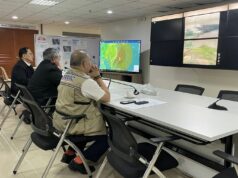 Still no qualifiers for Davao City bus system
Still no qualifiers for Davao City bus system
TWO OF the biggest Mindanao-based bus companies, Bachelor Express, Inc., and Davao Metro Shuttle Corporation, again failed to qualify in the second round of franchise application for the Davao City High Priority Bus System (HPBS). The Davao regional office of the Land Transportation Franchising and Regulatory Board (LTFRB) said the second selection process concluded August 20 without a winning bidder. Bachelor and Metro Shuttle were disqualified in the first round of the selection held last July 17. “We are again disqualifying them for lacking some requirements like availability of the units,” said LTFRB Regional Director Armand B. Dioso in a phone interview last week. A third round of bidding is set Sept. 11, and Mr. Dioso said they are hoping that there would be more interested companies, including those operating outside Mindanao. The franchises cover three initial routes for the HPBS, a project that aims to replace jeepneys in the city’s major roads. The full HPBS program will deploy around 1,000 bus units in 29 routes. Meanwhile, an initial batch of jeepney drivers and operators have completed a business management training program conducted by the Department of Trade and Industry. A social and livelihood assistance project is being rolled out for those who will be affected by the HPBS. Some of them are eyed to become part of the HPBS operations. — Maya M. Padillo
Matarinao Bay is latest red tide area
THE BUREAU OF Fisheries and Aquatic Resources (BFAR) has warned consumers against eating shellfish collected from Matarinao Bay in Eastern Samar after it tested positive for red ride contamination. In its latest shellfish bulletin, BFAR said Matarinao Bay joins other red tide positive areas such as Puerto Princesa City in Palawan; the coastal waters of Dauis and Tagbilaran City in Bohol; Tambobo Bay and Siit Bay in Siaton, and Bais Bay in Negros Oriental; Cancabato Bay, Tacloban City in Leyte; Balite Bay, Mati City in Davao Oriental; and Lianga Bay and the coastal waters of Hinatuan in Surigao del Sur. BFAR said all types of shellfish and Acetes sp. or alamang harvested from these areas are not safe for human consumption. However, other types of marine species such as fish, squid, shrimp, and crab are safe to eat provided they are fresh and washed thoroughly, and internal organs such as gills and intestines are removed before cooking, BFAR said. — Revin Mikhael D. Ochave



